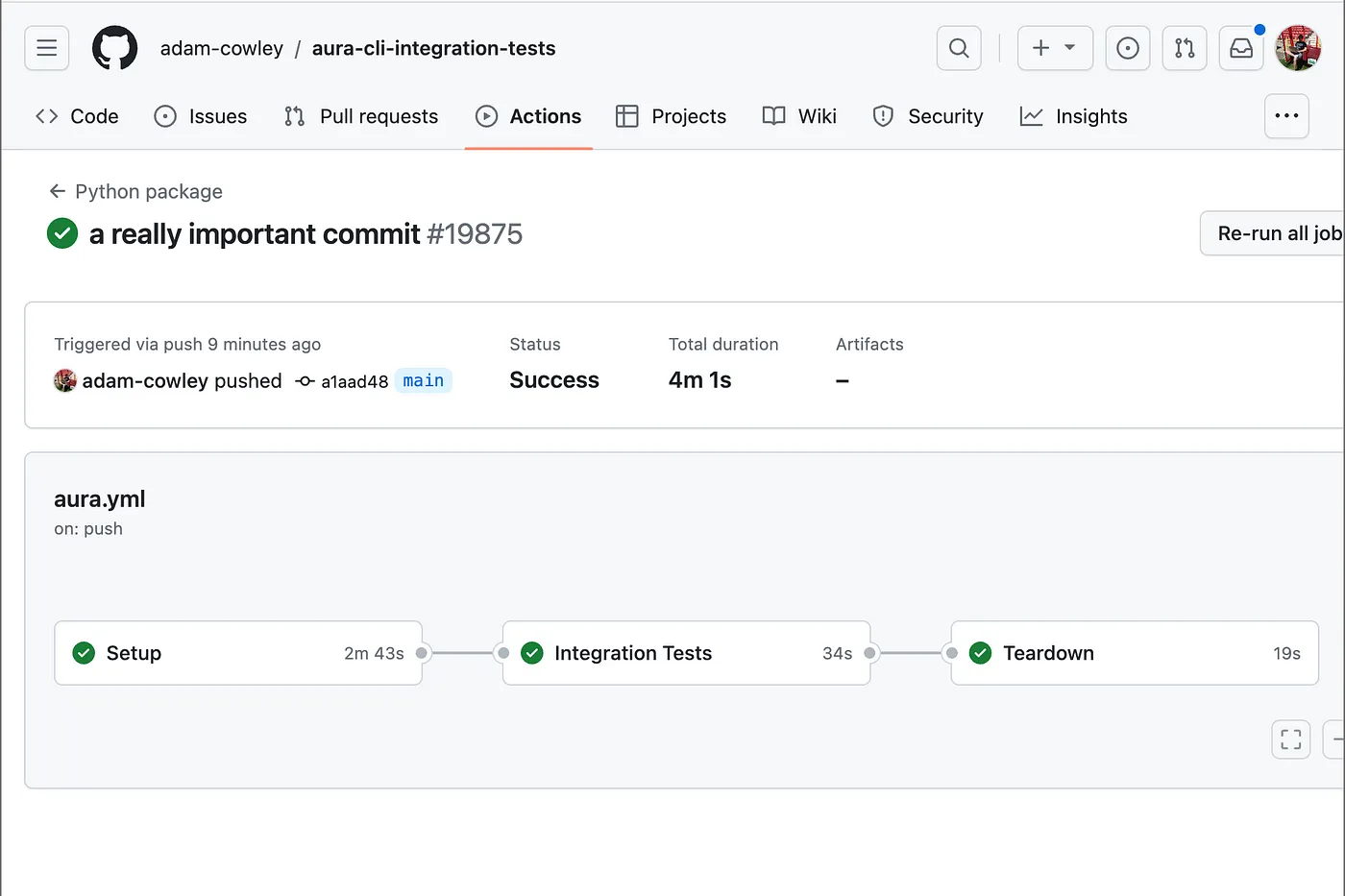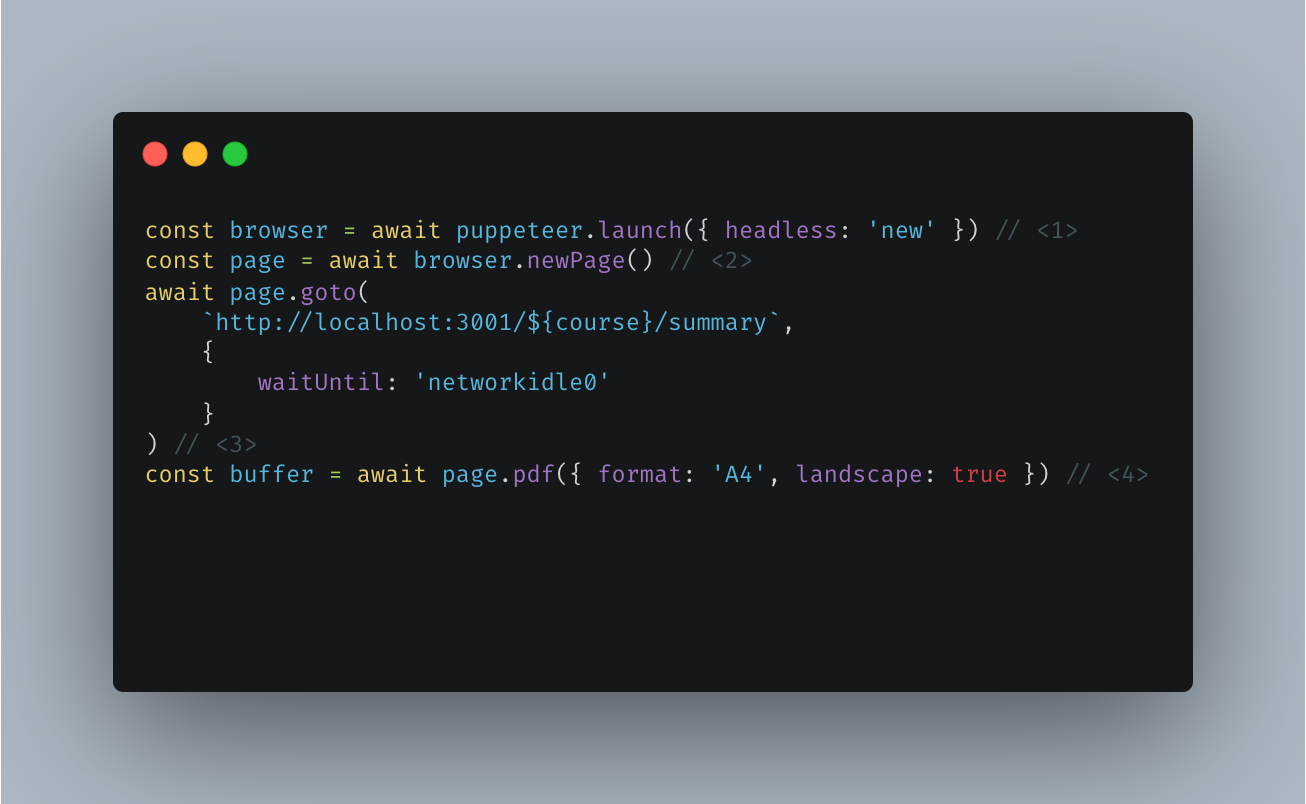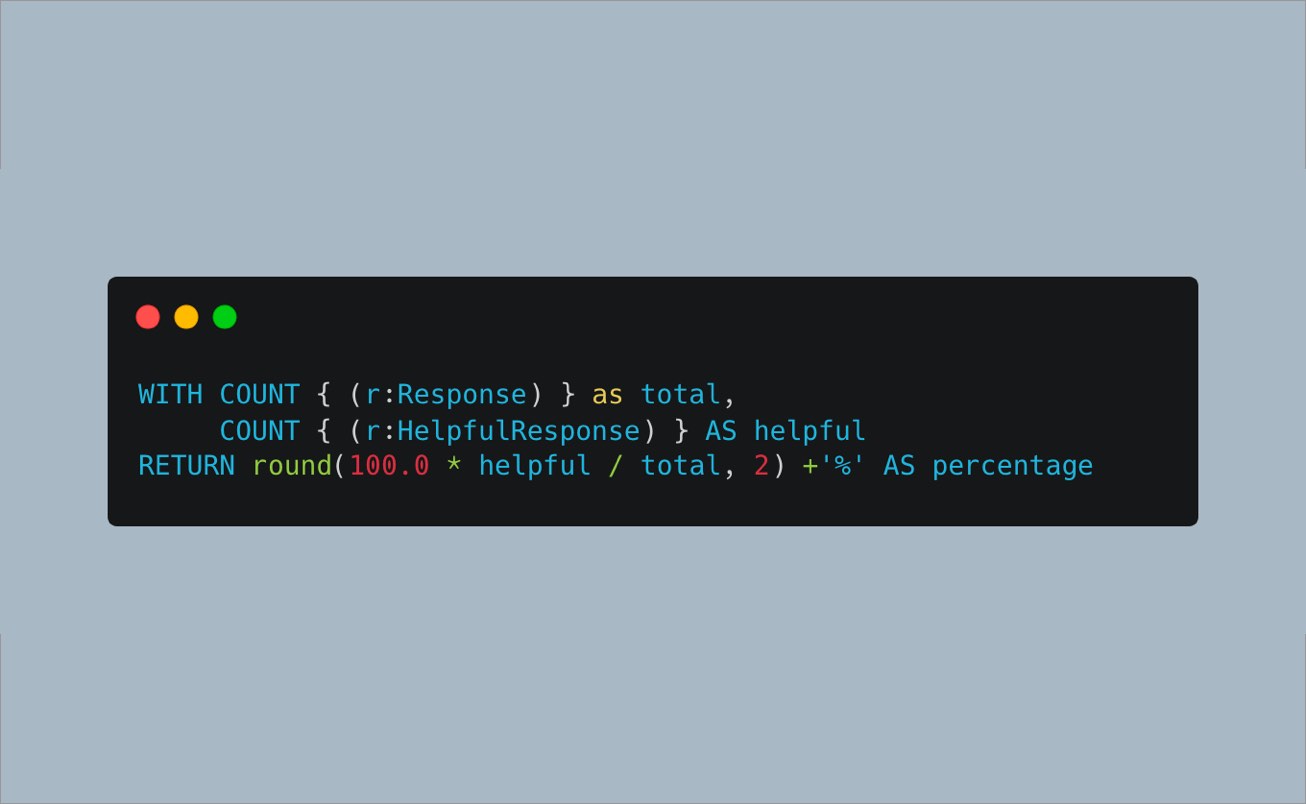TIL: Passing Output Parameters Between Jobs in Github Actions
- December 12, 2023

While writing the post Convenient Neo4j Integration Tests in GitHub Actions Using the Aura CLI , I needed to find a way to pass the newly created database ID and credentials from one job to another.
It took a bit of hunting, but in the end I found $GITHUB_OUTPUT. This references a file that you can append variables to for access in later jobs.
Saving a value
The following job has the ID setter and runs on ubuntu-latest.
on: workflow_dispatch
jobs:
setter:
runs-on: ubuntu-latestAs it will output a value called new-key, this will be defined in the outputs. The new-key value will be set in the set-value step.
outputs:
new-key: ${{ steps.set-value.outputs.new-key }}The following step creates a random number using $RANDOM and appends it to $GITHUB_OUTPUT with a key of new-key, as defined above.
steps:
- id: set-value
name: Generate a value
run: |
value=$((RANDOM))
echo "new-key=$value" >> "$GITHUB_OUTPUT"Accessing outputs within the same job
To access this value in the same job, you can use ${{ steps.[STEP ID].outputs.[KEY] }}.
For example, the previous step has an id of set-value and the value appended to $GITHUB_OUTPUT is new-key. So to access the value, you would use:
- name: Access it
run: |
echo "the secret number is ${{ steps.sets-value.outputs.new-key }}"Accessing outputs in another job
Grouping steps into jobs is a great way to keep your workflows organised. You can compartmentalise workflow steps into jobs that run on different operating systems, use different languages and environments, or that run in parallel.
To access the value in another job, you will first need to define the job as a dependency of the job you want to access it in. You can do this by adding the needs key to the job definition.
The ID of the job above is setter, so to access outputs in another job, you would add needs: setter to the job definition.
jobs:
# ...
getter:
runs-on: ubuntu-latest
needs: setterThen, inside a step, you can use the ${{ needs.[JOB ID].outputs.[KEY] }} syntax to access the value.
steps:
- name: Access it
run: |
echo "the secret number is ${{ needs.setter.outputs.new-key }}"Sensitive values
The workflow output usually detects sensitive values like passwords and API keys, but you can explicitly obscure these by masking sensitive environment variables in the output.
steps:
- id: set-value
name: Generate a value
run: |
value=$((RANDOM))
echo "new-key=$value" >> "$GITHUB_OUTPUT"
run: echo "::add-mask::$value"A working example
To view a full, working example, check out the workflow that accompanies the original post.


